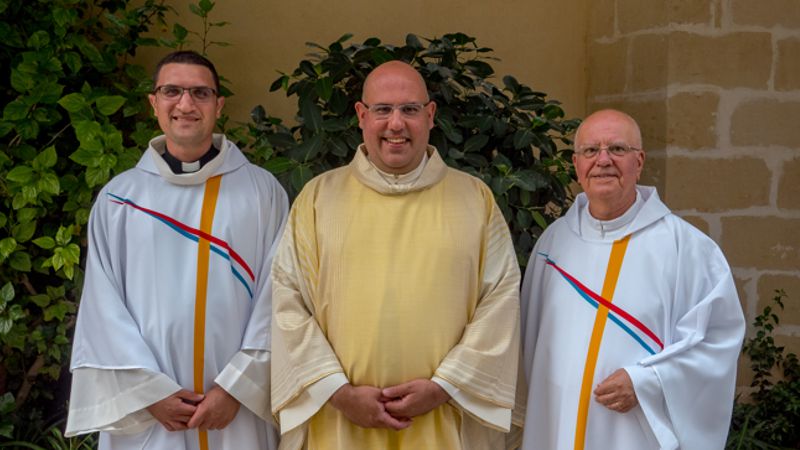Pietà

St. Augustine’s College was founded in 1848. For almost 100 years this was housed in the convent in Valletta. Due to reasons of space the college was first transferred to Tarxien and subsequently to Pieta’. In fact on the 17th June 1965, an avert appeared in The Times of Malta about the sale of 3 villas, a mezzanine and a large garden on Gwardamangia Hill, Pieta’ The Proposal put forward by the Provincial Father Ugolin M. Gatt to purchase these properties was accepted by the Provincial Council and by the Church Authorities.
In January 1966 repair work started on the villas where the school was going to be situated and where the brothers serving at the college were to live. As soon as the repairs were completed, the first religious community was formed. These had to make their work at the college their principal mission. These occupied the renovated building of the convent on the 10th March 1966. The decrees of the Prior General, Agostino Trape’ and those of the Sacred Congregation of Religious Fathers arrived on the 14th April 1966. Two days later the college was inaugurated with a mass that was held in the hall of the new college. On the 28th of the same month the religious house by the name of St. Thomas of Villanova was canonically set up.
Today the religious friars, fr. Mario Abela osa (Prior of the Community), fr. David Cortis osa (College Rector) and fr. Terence Spiteri osa (College Chaplain), that live in this community are involved in an educational pastoral activity in St. Augustine’s College Pieta’ (Secondary Campus) and in Marsa (Primary Campus).
The community has the responsibility of following young people in their vocational discernment and to assist them with their initial formation, whilst taking care of various young people and couples through pastoral work specifically aimed at young people and vocations. Religious brothers from this community also have a direct role in the administration of the Province.
The community has the responsibility of following young people in their vocational discernment and to assist them with their initial formation, whilst taking care of various young people and couples through pastoral work specifically aimed at young people and vocations. Religious brothers from this community also have a direct role in the administration of the Province.

